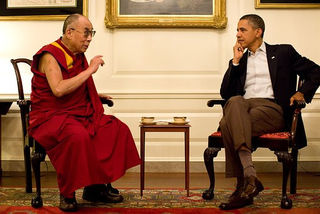Do You Love to Be Needed or Need to Be Loved Review

Source: Anemone_123/Pixabay
Loving and existence loved are non "givens." The world would be a far better place if each child who is brought into it was wanted and dear—if not before nativity then shortly after, once its presence resounds. That, unfortunately, is non the instance. Horror stories, such as those described in the Adverse Babyhood Experiences studies, abound, detailing challenges faced by unloved children. Ane inevitable outcome is that they so demand to learn to give and receive love. Because dearest was not something they always knew, they do non automatically know how to do it well, especially when it comes to loving themselves and feeling worthy of beingness loved past another.
Happily, a capacity to feel love seems to be as hard-wired as our abilities to walk, speak, read, or play. Some internal weather condition such equally a sound sensorimotor organisation, absenteeism from pain, access to relative comfort, and basic safety from damage permit a baby to enjoy the pleasures of touch, of reciprocity in gazes and laughter, of existence able to depend on someone to care for needs that cannot yet be met independently. A "secure attachment," the cornerstone of a loving relationship, develops out of trust that someone will provide what is needed. When neglect, abuse, or squalor supercede basic condolement, the baby develops a different understanding of and set of expectations for relationships.
Human impulses to help and provide care cannot exist assumed. The simple kindness of someone who offers comfort or attending tin can be (mis)understood equally love; perhaps sheer consistency of availability provides a safe feeling that becomes labeled "dear." In these cases, dear is defined past a relationship that offers care instead of cruelty, friendship instead of unpredictability, or affection instead of impecuniousness. Beloved becomes defined past experiences that release chemicals—oxytocin (the caress/caring hormone), dopamine (the pleasance chemical), vasopressin (for allure) or, following puberty, the estrogen and testosterone of animalism. The please of feeling accustomed and valued is yet to exist experienced.

Source: StockSnap/Pixabay
Yet love can exist learned, especially once nosotros reach adolescence, gain capacities for forethought and conscious intention, and can larn to honey ourselves. With a maturing brain that permits reflection and expanded life experiences that brand room for a broader social circle, people are able to observe themselves with curiosity, attending, compassion, and kindness.
- Marvel, a willingness to explore and accept the full range of reactions and feelings, brings the ability to exist grateful for all that our emotions and bodily sensations tin can teach about the human experience. It can prod one to look beneath the surface of appearances, to observe substance beneath an introvert'due south repose or emptiness underneath glitter. Trying out a new function, developing a new skill, investigating a possible futurity self can bring honesty and inner direction and with them the cocky-respect that lies at the core of loving oneself.
- Attention is the second prong of cocky-love. Attention ways examining what brings pleasure or alleviates hurting and to invest in providing for both. It is a form of self-honey easily amplified by mindfulness, reflection, stillness. In taking the time to listen to i's torso and laurels a need for food, drink, motility, an increase or decrease in stimulation, we acquire to place our own needs, to discriminate betwixt needs and wants, and to discover means to care for ourselves. Yoga stretches can exist metaphors for stretching oneself in other ways; rest postures can reflect internal equilibrium; the regular do of the art can build cocky-discipline. Our subtler needs come into focus when we slow downwards and pay attending.
- Compassion may exist the magic central to self-beloved. The empathy we feel when nosotros look at ourselves with compassionate love allows us to recognize our imperfections and accept our human desires, impulses, and specially our limited reserves. We can stop making irrational demands on ourselves in order to believe we are lovable. Seeking to be "good enough" to exist worthy of love only invites us to climb onto the treadmill of perfectionism. Endless innovative psychologists have shown us that "perfect" does non exist in our human being feel. For example, Roy Baumeister, in conducting his famous chocolate chip cookie experiments, demonstrated that will-power uses our emotional energy. He showed that self-command is not infinite, and we become depleted later exhausting extended cocky-bailiwick. In another instance, Sheldon Cohen, Bert Uchino, Janice Kiecolt-Glaser, and their various colleagues, in dissever series of studies, examined the physical wellness costs of emotional pain and negative advice in close relationships. In doing and then, these researchers and others accept documented an immune arrangement that has wisdom across the illusion of physical invulnerability. Every bit the French say, "the perfect is the enemy of the good"—perfection just does not be and the conventionalities it can be obtained will outcome in failure.
- Acts of kindness are ways to demonstrate and build self-beloved. Through gentle thoughts, respectful habits, and nurturant behaviors, we both show love to ourselves and are forced to acknowledge its consequences. Dignity, delight and self-respect document that loving is a worthwhile activity.
Marvel, attention, pity, and kindness, skilful as means of honoring ourselves, permit us to develop a loving relationship with ourselves. And once nosotros learn to honey ourselves, to treat ourselves with intendance, consistency, and affection, we can directly our loving hearts outwards.
What other kinds of honey await us?
- Nosotros tin can love babies. Their soft skin, sweet smell, oversized heads and responsiveness when their needs are met invite us to honey them. The more than ii beings know each other, the greater the bonds of love can abound. As our capacity increases, nosotros tin reach out to beloved more broadly and deeply.
- We dear family unit. Sometimes. Some family members more than than others. And family of choice equally well as family unit past blood or legal ties. We tin can learn to love those with whom we share our daily lives because of our sheer exposure to each other's basic beingness.
- Nosotros love those we intendance for. There is something about physically taking care of another human being who is dependent on us for that intendance that reaches deep into our capacity to requite, to brand a difference. It allows the states to dearest them too as to love how nosotros feel being able to make the difference. Caregivers often written report abiding joy from their connections.
-

Source: 3194556/Pixabay
We love companions. The bonds of friendship are a special class of dear, one in which nosotros grow and share equally our lives evolve. In navigating our common stresses and triumphs, sharing activities and tribulations, we come to appreciate each other'southward strengths and grow from them. The "expansion theory of love" developed by Arthur and Elaine Aron can utilize to friendships equally well as romantic love relationships.
- We dear our pets. The human relationship between a pet and its owner can also be symbiotic, particularly when the pet shows the kind of attachment that comes and so easily to some mammals. Subsequently I was widowed, my relationship with my bichon gave me something to replenish all the empty spaces that had been filled with dear. In her Canine Cognition Laboratory, Yale professor Laurie Santos has demonstrated the unique bonds that dogs can take with their masters and mistresses; the Canine Cognition Laboratory at Duke has traced the sources of these bonds down to their chemical roots.
- We love our passions. Mihalyi Csikszentmihaly published his offset volume nearly the state of "flow," a full engagement in an activity in which passion becomes its own motivator, in 1975. A alluvion of validating research followed. Our dedication to an activity that we honey brings countless benefits that align with those of other sorts of love.
- We love places. We can hands attach to a identify with item meaning to usa. Whether because of our history in that location or our aesthetic response to it. The field of environmental psychology explores this love. Some scholars have fifty-fifty argued that we imprint onto the geography where we are born and are forever attracted to a similar mural. In a more limited way, people tin create a home that they beloved and ensure that information technology helps them admission nourishment for trunk and soul.
-

Source: janeb 13/Pixabay
Nosotros love altruistically. Religions have been structured effectually the concept of altruistic dear. The Abrahamic religions all command us to "love thy neighbor as thyself." Through meditation and self-love, Buddhists are able to discover their connection to and thus beloved for all living creatures.
- We love the world. The physical globe that we live in tin can be a source of honey for those who believe in transcendence or the universal beauty of nature and evolution.
- And yep, of grade, we tin beloved romantically. Ah, the elation and agony of romantic love! The magic of a committed couple can indeed final a lifetime, as documented by Bianca Acevedo and Arthur Aron in their review of studies of long-term lovers.
- Why Relationships Matter
- Find a therapist to strengthen relationships

Source: 3194556/Pixabay

Source: janeb thirteen/Pixabay
If your life did not brainstorm on a annotation loaded with love and attention, do non despair. Honey tin can be learned, and you tin accept the joy of not only feeling it, giving it, and sharing it, merely also of teaching it. What greater blessing can there exist?
Copyright 2019: Roni Beth Tower.
References
Acevedo, B. & Aron, A. (2009). Does a Long-Term Relationship Kill Romantic beloved?, Review of Full general Psychology, 13, 39-65.
Csikszentmihalyi, One thousand., Abuhamdeh, Due south., Elliot, A. & Nakamura, J. (2005). Handbook of Competence and Motivation. The Guilford Press.
Csikszentmihalyi, Mihaly (1975). Across Boredom and Anxiety: Experiencing Menses in Work and Play, San Francisco: Jossey-Bass. ISBN 0-87589-261-ii
Source: https://www.psychologytoday.com/us/blog/life-refracted/201902/learning-love-and-be-loved
0 Response to "Do You Love to Be Needed or Need to Be Loved Review"
Post a Comment